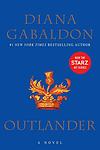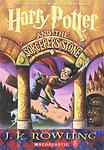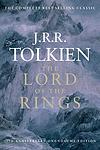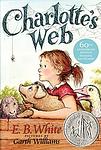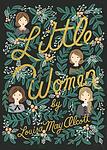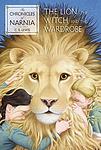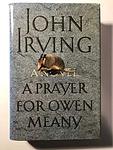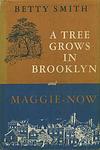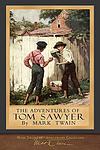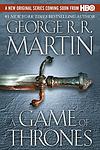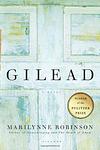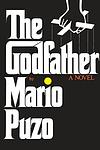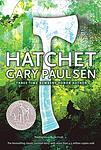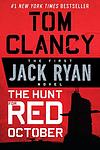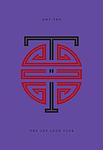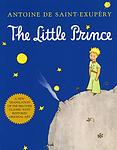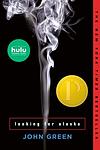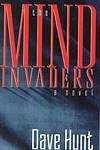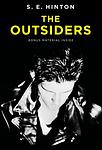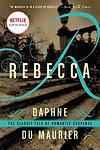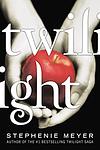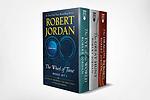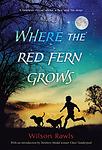The Great American Read
This is one of the 273 lists we use to generate our main The Greatest Books list.
-
To Kill a Mockingbird by Harper Lee
Set in the racially charged South during the Depression, the novel follows a young girl and her older brother as they navigate their small town's societal norms and prejudices. Their father, a lawyer, is appointed to defend a black man falsely accused of raping a white woman, forcing the children to confront the harsh realities of racism and injustice. The story explores themes of morality, innocence, and the loss of innocence through the eyes of the young protagonists.
-
Outlander by Diana Gabaldon
The novel follows a World War II nurse who accidentally time travels back to 18th century Scotland. There, she meets a handsome and brave Scottish warrior and is torn between her loyalty to her husband in her own time and her growing love for the warrior. As she becomes more entwined in the past, she must navigate the dangers of a time not her own, including political unrest and violence, while trying to find a way back home.
-
Harry Potter And The Philosopher's Stone by J. K Rowling
The story follows a young boy, Harry Potter, who learns on his 11th birthday that he is the orphaned son of two powerful wizards and possesses unique magical powers of his own. He is summoned from his life as an unwanted child to become a student at Hogwarts, an English boarding school for wizards. There, he meets several friends who become his closest allies and help him discover the truth about his parents' mysterious deaths, the dark wizard who wants to kill him, and the magical stone that holds immense power.
-
Pride and Prejudice by Jane Austen
Set in early 19th-century England, this classic novel revolves around the lives of the Bennet family, particularly the five unmarried daughters. The narrative explores themes of manners, upbringing, morality, education, and marriage within the society of the landed gentry. It follows the romantic entanglements of Elizabeth Bennet, the second eldest daughter, who is intelligent, lively, and quick-witted, and her tumultuous relationship with the proud, wealthy, and seemingly aloof Mr. Darcy. Their story unfolds as they navigate societal expectations, personal misunderstandings, and their own pride and prejudice.
-
The Lord of the Rings by J. R. R. Tolkien
This epic high-fantasy novel centers around a modest hobbit who is entrusted with the task of destroying a powerful ring that could enable the dark lord to conquer the world. Accompanied by a diverse group of companions, the hobbit embarks on a perilous journey across Middle-earth, battling evil forces and facing numerous challenges. The narrative, rich in mythology and complex themes of good versus evil, friendship, and heroism, has had a profound influence on the fantasy genre.
-
Gone With the Wind by Margaret Mitchell
Set against the backdrop of the American Civil War and Reconstruction era, this novel follows the life of a young Southern belle, who is known for her beauty and charm. Her life takes a turn when she is forced to make drastic changes to survive the war and its aftermath. The story revolves around her struggle to maintain her family's plantation and her complicated love life, especially her unrequited love for a married man, and her tumultuous relationship with a roguish blockade runner.
-
Charlotte's Web by E. B. White
A young girl named Fern saves a runt piglet from being slaughtered and names him Wilbur. When Wilbur grows too large, he is sent to live in her uncle's barn, where he befriends a clever spider named Charlotte. When Wilbur's life is in danger again, Charlotte weaves messages into her web to convince the farmer that Wilbur is too special to kill. The book explores themes of friendship, sacrifice, and the cycle of life.
-
Little Women by Louisa May Alcott
This classic novel follows the lives of the four March sisters - Meg, Jo, Beth, and Amy - as they navigate the challenges and joys of adolescence and adulthood in 19th century New England. As they grow, they grapple with issues of poverty, gender roles, love, and personal identity, each in her own unique way. The story is a testament to the power of family, sisterhood, and female resilience in a time of societal constraints.
-
The Chronicles of Narnia by C. S. Lewis
This seven-part series follows the adventures of various children who play central roles in the unfolding history of the fantastical realm of Narnia. The children are magically transported to Narnia from our world, where they aid the noble lion Aslan in his struggles against evil forces in order to restore peace and justice. The series explores themes of good versus evil, the nature of faith, and the power of sacrifice, all set against a richly imagined magical world full of diverse creatures and landscapes.
-
Jane Eyre by Charlotte Bronte
The novel follows the life of Jane Eyre, an orphan who is mistreated by her relatives and sent to a charity school. As she grows up, Jane becomes a governess at Thornfield Hall, where she falls in love with the brooding and mysterious Mr. Rochester. However, she soon learns of a dark secret in his past that threatens their future together. The story is a profound exploration of a woman's self-discovery and her struggle for independence and love in a rigid Victorian society.
-
Anne of Green Gables by L. M. Montgomery
The book follows the life of a young orphan girl who is mistakenly sent to live with an elderly brother and sister who originally wanted to adopt a boy to help them with their farm in Prince Edward Island. Despite the initial disappointment, the girl's charm, vivacity, and imagination soon win over her new guardians. The story details her adventures and mishaps in her new home, her struggles and triumphs at school, and her gradual maturing into a smart, independent young woman.
-
The Grapes of Wrath by John Steinbeck
The book follows the Joad family, Oklahoma farmers displaced from their land during the Great Depression. The family, alongside thousands of other "Okies," travel to California in search of work and a better life. Throughout their journey, they face numerous hardships and injustices, yet maintain their humanity through unity and shared sacrifice. The narrative explores themes of man's inhumanity to man, the dignity of wrath, and the power of family and friendship, offering a stark and moving portrayal of the harsh realities of American migrant laborers during the 1930s.
-
Nineteen Eighty Four by George Orwell
Set in a dystopian future, the novel presents a society under the total control of a totalitarian regime, led by the omnipresent Big Brother. The protagonist, a low-ranking member of 'the Party', begins to question the regime and falls in love with a woman, an act of rebellion in a world where independent thought, dissent, and love are prohibited. The novel explores themes of surveillance, censorship, and the manipulation of truth.
-
A Confederacy of Dunces by John Kennedy Toole
The novel is a comedic satire set in New Orleans in the early 1960s, centered around Ignatius J. Reilly, a lazy, eccentric, highly educated, and socially inept man who still lives with his mother. Ignatius spends his time writing a lengthy philosophical work while working various jobs and avoiding the responsibilities of adulthood. The story follows his misadventures and interactions with a colorful cast of characters in the city, including his long-suffering mother, a flamboyant nightclub owner, a beleaguered factory worker, and a frustrated hot dog vendor.
-
A Prayer for Owen Meany by John Irving
The book is a tale of two childhood friends, one of whom believes he is God's instrument. The story is set in a New England town during the 1950s and 1960s and follows the lives of the two boys, one small and with a strange voice, who has visions of his own death and believes he is an instrument of God, and the other, the narrator, who struggles with faith. The novel explores themes of faith, fate, and the power of friendship against a backdrop of historical and political events, including the Vietnam War.
-
A Separate Peace by John Knowles
Set in a New England boarding school during World War II, this novel explores the tumultuous friendship between two boys, a charismatic and daring athlete and his introverted, intellectual roommate. The story delves into themes of envy, identity, and the loss of innocence, culminating in a tragic accident that forever changes their lives. The backdrop of the war adds a layer of tension and urgency, reflecting the inner turmoil of the protagonists.
-
A Tree Grows in Brooklyn by Betty Smith
This classic novel follows the life of Francie Nolan, a young girl growing up in the slums of early 20th century Brooklyn. The narrative explores her experiences with poverty, her pursuit of education, and her dreams of a better life. The tree in the title serves as a symbol of her resilience and hope, growing and thriving despite the harsh conditions around it, much like Francie herself.
-
The Adventures of Tom Sawyer by Mark Twain
The book chronicles the mischievous adventures of a young boy living on the Mississippi River in the mid-19th century. The protagonist, a clever and imaginative boy, often finds himself in trouble for his pranks and daydreams. His escapades range from his romance with a young girl, his search for buried treasure, his attendance at his own funeral, and his witnessing of a murder. The narrative captures the essence of childhood and the societal rules of the time.
-
The Alchemist by Paulo Coelho
A young Andalusian shepherd named Santiago dreams of finding a worldly treasure and sets off on a journey across the Egyptian desert in search of it. Along the way, he encounters a series of characters who impart wisdom and help guide his spiritual journey. The novel explores themes of destiny, personal legend, and the interconnectedness of all things in the universe. The boy learns that true wealth comes not from material possessions, but from self-discovery and attaining one's "Personal Legend".
-
I, Alex Cross by James Patterson
A seasoned detective is called to the scene of a brutal murder in the poor outskirts of Washington, D.C. Shockingly, the victim turns out to be his own niece. As he digs deeper into the crime, he uncovers a series of gruesome murders that all seem to be the work of a deranged serial killer. The detective soon finds himself in a deadly game of cat and mouse, racing against time to stop the killer before he strikes again. His investigation leads him to a secret society where the rich and powerful gather to indulge in their darkest desires.
-
Alice's Adventures in Wonderland by Lewis Carroll
This novel follows the story of a young girl named Alice who falls down a rabbit hole into a fantastical world full of peculiar creatures and bizarre experiences. As she navigates through this strange land, she encounters a series of nonsensical events, including a tea party with a Mad Hatter, a pool of tears, and a trial over stolen tarts. The book is renowned for its playful use of language, logic, and its exploration of the boundaries of reality.
-
Americanah by Chimamanda Ngozi Adichie
The novel follows a young Nigerian woman who emigrates to the United States for a university education. While there, she experiences racism and begins blogging about her experiences as an African woman in America. Meanwhile, her high school sweetheart faces his own struggles in England and Nigeria. The story is a powerful exploration of race, immigration, and the complex nature of identity, love, and belonging.
-
And Then There Were None by Agatha Christie
In this classic mystery novel, ten strangers are invited to a secluded mansion on a private island by a mysterious host who is nowhere to be found. As the guests begin to die one by one, mirroring a creepy nursery rhyme that hangs in each of their rooms, they realize that the killer is among them. As suspicion and fear escalate, they must uncover the murderer before no one remains.
-
Another Country by James Baldwin
"Another Country" is a profound exploration of racial, sexual, and creative issues in 1950s Manhattan. The story follows the lives of various characters, including a jazz drummer, a Southern white woman, and a black playwright, among others. As the narrative unfolds, it delves into their struggles with identity, prejudice, and interpersonal relationships, offering a raw and unflinching portrayal of America's social and cultural landscape during a time of intense change and conflict.
-
Atlas Shrugged by Ayn Rand
This novel unfolds in a dystopian United States where society's most productive citizens, including inventors, scientists and industrialists, refuse to be exploited by increasing social and economic demands. As a response, they withdraw their talents, leading to the collapse of the economy. The story presents the author's philosophy of objectivism, which values reason, individualism, and capitalism, and rejects collectivism and altruism. The narrative primarily follows Dagny Taggart, a railroad executive, and John Galt, a philosophical leader and inventor, as they navigate this societal breakdown.
-
Beloved by Toni Morrison
This novel tells the story of a former African-American slave woman who, after escaping to Ohio, is haunted by the ghost of her deceased daughter. The protagonist is forced to confront her repressed memories and the horrific realities of her past, including the desperate act she committed to protect her children from a life of slavery. The narrative is a poignant exploration of the physical, emotional, and psychological scars inflicted by the institution of slavery, and the struggle for identity and self-acceptance in its aftermath.
-
Bless Me, Ultima by Rudolfo Anaya
The novel follows the story of a young boy in New Mexico in the 1940s who navigates the challenges of adolescence, faith, and identity with the guidance of a wise old woman named Ultima. Throughout the narrative, the boy grapples with moral dilemmas, the complexities of his Mexican-American heritage, and the clash between the Catholic faith and the traditional spiritual beliefs of his ancestors. The story is a rich tapestry of folklore, spirituality, and personal growth.
-
The Book Thief by Markus Zusak
Set in Nazi Germany during World War II, the novel follows the story of a young girl who finds solace in stealing books and sharing them with others. In the midst of the horrors of war, she forms a bond with a Jewish man her foster parents are hiding in their basement. The story is narrated by Death, offering a unique perspective on the atrocities and small acts of kindness during this period. The girl's love for books becomes a metaphor for resistance against the oppressive regime.
-
The Brief Wondrous Life of Oscar Wao by Junot Diaz
This novel tells the story of Oscar de Leon, an overweight Dominican boy growing up in New Jersey who is obsessed with science fiction, fantasy novels, and falling in love, but is perpetually unlucky in his romantic endeavors. The narrative not only explores Oscar's life but also delves into the lives of his family members, each affected by the curse that has plagued their family for generations. The book is a blend of magical realism and historical fiction, providing a detailed account of the brutal Trujillo regime in the Dominican Republic and its impact on the country's people and diaspora.
-
The Call of the Wild by Jack London
This book tells the story of a domesticated dog named Buck who is stolen from his home in California and sold into service as a sled dog in Alaska. As he faces harsh conditions and brutal treatment, Buck must learn to adapt to the wild and harsh environment, ultimately reverting to his ancestral instincts in order to survive. The book explores themes of nature versus nurture, civilization versus wilderness, and the struggle for dominance.
-
Catch-22 by Joseph Heller
The book is a satirical critique of military bureaucracy and the illogical nature of war, set during World War II. The story follows a U.S. Army Air Forces B-25 bombardier stationed in Italy, who is trying to maintain his sanity while fulfilling his service requirements so that he can go home. The novel explores the absurdity of war and military life through the experiences of the protagonist, who discovers that a bureaucratic rule, the "Catch-22", makes it impossible for him to escape his dangerous situation. The more he tries to avoid his military assignments, the deeper he gets sucked into the irrational world of military rule.
-
The Catcher in the Rye by J. D. Salinger
The novel follows the story of a teenager named Holden Caulfield, who has just been expelled from his prep school. The narrative unfolds over the course of three days, during which Holden experiences various forms of alienation and his mental state continues to unravel. He criticizes the adult world as "phony" and struggles with his own transition into adulthood. The book is a profound exploration of teenage rebellion, alienation, and the loss of innocence.
-
The Clan of the Cave Bear by Jean M. Auel
This novel tells the story of a young girl named Ayla who, after an earthquake kills her family, is adopted by a tribe of Neanderthals known as the Clan. Ayla struggles to fit in with the Clan due to her physical differences and advanced cognitive abilities. Despite these challenges, she learns their customs and ways of life, and even becomes the apprentice of the Clan's medicine woman. The story explores themes of survival, acceptance, and the clash between cultures and species.
-
The Coldest Winter Ever by Sister Souljah
This novel tells the story of Winter Santiaga, the teenage daughter of a powerful drug lord in Brooklyn. After her father's empire collapses and he is imprisoned, Winter's privileged lifestyle ends abruptly, and she must navigate the harsh realities of poverty, addiction, and the criminal justice system. The narrative explores themes of race, class, and the consequences of choices, offering a gritty, unflinching look at life in urban America.
-
The Color Purple by Alice Walker
Set in the early 20th century, the novel is an epistolary tale of a young African-American woman named Celie, living in the South. She faces constant abuse and hardship, first from her father and then from her husband. The story unfolds through her letters written to God and her sister Nettie, revealing her emotional journey from oppression to self-discovery and independence, aided by her relationships with strong women around her. The narrative explores themes of racism, sexism, domestic violence, and the power of sisterhood and love.
-
The Count of Monte Cristo by Alexandre Dumas
A young sailor, unjustly accused of treason, is imprisoned without trial in a grim fortress. After a daring escape, he uncovers a hidden treasure and transforms himself into the mysterious and wealthy Count of Monte Cristo. He then sets out to exact revenge on those who wronged him, using his newfound power and influence. Throughout his journey, he grapples with questions about justice, vengeance, and whether ultimate power can ultimately corrupt.
-
Crime and Punishment by Fyodor Dostoevsky
A young, impoverished former student in Saint Petersburg, Russia, formulates a plan to kill an unscrupulous pawnbroker to redistribute her wealth among the needy. However, after carrying out the act, he is consumed by guilt and paranoia, leading to a psychological battle within himself. As he grapples with his actions, he also navigates complex relationships with a variety of characters, including a virtuous prostitute, his sister, and a relentless detective. The narrative explores themes of morality, redemption, and the psychological impacts of crime.
-
The Curious Incident of the Dog in the Night-time by Mark Haddon
This novel follows a 15-year-old boy with autism as he tries to solve the mystery of who killed his neighbor's dog. Along the way, he uncovers other secrets about his family and must navigate the world using his unique perspective and abilities. The book offers an insightful look into the mind of a character with autism, highlighting his struggles and triumphs in a compelling and empathetic way.
-
The Da Vinci Code by Dan Brown
This thriller novel follows symbologist Robert Langdon and cryptographer Sophie Neveu as they investigate a murder in the Louvre Museum in Paris. The murder leads them to a trail of clues hidden in the works of Leonardo da Vinci, revealing a religious mystery protected by a secret society for two thousand years. The mystery involves a conspiracy within the Catholic Church and threatens to overturn the foundations of Christianity.
-
Don Quixote by Miguel de Cervantes
This classic novel follows the adventures of a man who, driven mad by reading too many chivalric romances, decides to become a knight-errant and roam the world righting wrongs under the name Don Quixote. Accompanied by his loyal squire, Sancho Panza, he battles windmills he believes to be giants and champions the virtuous lady Dulcinea, who is in reality a simple peasant girl. The book is a richly layered critique of the popular literature of Cervantes' time and a profound exploration of reality and illusion, madness and sanity.
-
Doña Bárbara by Rómulo Gallegos
Set in the Venezuelan llano, the book tells the story of an ongoing struggle between two powerful landowners. One is Doña Bárbara, a ruthless and cunning woman who has used her cunning and seductive prowess to amass a large amount of land. The other is Santos Luzardo, an educated city-dweller who returns to the plains to reclaim his family's property. The novel explores themes of civilization versus barbarism, the struggle for land, and the magical realism of the South American landscape.
-
Dune by Frank Herbert
Set in a distant future, the novel follows Paul Atreides, whose family assumes control of the desert planet Arrakis. As the only producer of a highly valuable resource, jurisdiction over Arrakis is contested among competing noble families. After Paul and his family are betrayed, the story explores themes of politics, religion, and man’s relationship to nature, as Paul leads a rebellion to restore his family's reign.
-
Fifty Shades of Grey: by E L James
A young, innocent college student interviews a handsome, enigmatic billionaire for her campus newspaper and soon finds herself drawn into his world of dominance and submission. As she navigates the unfamiliar territory of BDSM, she must also grapple with her own desires and the emotional complexities of their unconventional relationship. This erotic romance novel explores themes of power, control, and the nature of love and desire.
-
Flowers in the Attic by V. C. Andrews
The novel focuses on four siblings who, after the tragic death of their father, are locked away in the attic of their cruel grandmother's mansion as their mother tries to inherit the family fortune. The children endure years of abuse and neglect, and as their mother's visits become less frequent, they must rely on each other for survival. Over time, they form a deeply complex and troubling relationship, leading to a shocking and devastating climax.
-
Foundation by Isaac Asimov
This science fiction novel centers around Hari Seldon, a mathematician who has developed a branch of mathematics known as psychohistory. With it, he can predict the future on a large scale. Seldon foresees the imminent fall of the Galactic Empire, which encompasses the entire Milky Way, and a dark age lasting 30,000 years before a second great empire arises. To shorten this period of barbarism, he creates two Foundations at opposite ends of the galaxy. The book follows the first few centuries of the Foundation's existence, focusing on the scientists as they develop new technologies and negotiate with neighboring planets.
-
Frankenstein by Mary Shelley
This classic novel tells the story of a young scientist who creates a grotesque but sentient creature in an unorthodox scientific experiment. The scientist, horrified by his creation, abandons it, leading the creature to seek revenge. The novel explores themes of ambition, responsibility, guilt, and the potential consequences of playing God.
-
A Game of Thrones by George R. R. Martin
This epic fantasy novel is set in the Seven Kingdoms of Westeros, where 'summers span decades and winters can last a lifetime'. The story follows three main plot lines: the Stark family's struggle to control the North; the exiled Targaryen siblings' attempt to regain the throne; and the Night's Watch's fight against the supernatural beings beyond the Wall. As these stories intertwine, a game of power, politics, and survival unfolds, where you either win or you die.
-
Ghost by Jason Reynolds
The book tells the story of a young boy named Castle Cranshaw, who is trying to escape his troubled past. He discovers his talent for sprinting when he joins a local track team. The coach becomes a mentor to him, and his teammates become his friends. As he trains for the Junior Olympics, he learns about discipline, teamwork, and dealing with his past. The book tackles themes of trauma, redemption, and the power of sports.
-
Gilead by Marilynne Robinson
The novel is a series of reflections written by an elderly dying pastor in 1956 in Gilead, Iowa, as a letter to his young son. The protagonist, John Ames, shares his family history, personal thoughts, and the struggles of his life, including the tension with his namesake and godson who returns to their small town. The book explores themes of faith, regret, and the beauty of existence, providing a profound meditation on life and death.
-
The Giver by Lois Lowry
The book is set in a seemingly perfect community without war, pain, suffering, differences or choice, where everything is under control. The protagonist is chosen to learn from an elderly man about the true pain and pleasure of the "real" world. He discovers the dark secrets behind his fragile community and struggles to handle the burden of the knowledge of pain and the concept of individuality. He must decide whether to accept the status quo or break free, risking everything.
-
The Godfather by Mario Puzo
The book revolves around the powerful Italian-American crime family of Don Vito Corleone. When the don's youngest son, Michael, reluctantly joins the mafia, he becomes involved in the inevitable cycle of violence and betrayal. Although Michael tries to maintain a normal relationship with his wife, Kay, he is drawn deeper into the family business. The narrative follows the Corleone family's struggle to hold onto power in a rapidly changing world, as well as Michael's transformation from reluctant family outsider to ruthless mafia boss.
-
Gone Girl by Gillian Flynn
This thrilling novel revolves around the sudden disappearance of a woman on her fifth wedding anniversary. As the investigation unfolds, all evidence points to her husband as the prime suspect. However, the story takes a twist as the wife's diary entries reveal a darker side to their seemingly perfect marriage. The narrative alternates between the husband's present-day perspective and the wife's diary entries, leaving readers in suspense about what truly happened. The book explores themes of deceit, media influence, and the complexities of marriage.
-
Great Expectations by Charles Dickens
A young orphan boy, living with his cruel older sister and her kind blacksmith husband, has an encounter with an escaped convict that changes his life. Later, he becomes the protégé of a wealthy but reclusive woman and falls in love with her adopted daughter. He then learns that an anonymous benefactor has left him a fortune, leading him to believe that his benefactor is the reclusive woman and that she intends for him to marry her adopted daughter. He moves to London to become a gentleman, but his great expectations are ultimately shattered when he learns the true identity of his benefactor and the reality of his love interest.
-
The Great Gatsby by F. Scott Fitzgerald
Set in the summer of 1922, the novel follows the life of a young and mysterious millionaire, his extravagant lifestyle in Long Island, and his obsessive love for a beautiful former debutante. As the story unfolds, the millionaire's dark secrets and the corrupt reality of the American dream during the Jazz Age are revealed. The narrative is a critique of the hedonistic excess and moral decay of the era, ultimately leading to tragic consequences.
-
Gulliver's Travels by Jonathan Swift
This classic satire follows the travels of a surgeon and sea captain who embarks on a series of extraordinary voyages. The protagonist first finds himself shipwrecked on an island inhabited by tiny people, later discovers a land of giants, then encounters a society of intelligent horses, and finally lands on a floating island of scientists. Through these bizarre adventures, the novel explores themes of human nature, morality, and society, offering a scathing critique of European culture and the human condition.
-
The Handmaid's Tale by Margaret Atwood
Set in a dystopian future, this novel presents a society where women are stripped of their rights and are classified into various roles based on their fertility and societal status. The protagonist is a handmaid, a class of women used solely for their reproductive capabilities by the ruling class. The story is a chilling exploration of the extreme end of misogyny, where women are reduced to their biological functions, and a critique of religious fundamentalism.
-
Hatchet by Gary Paulsen
A 13-year-old boy survives a plane crash in the Canadian wilderness and is left to fend for himself with only a hatchet his mother gave him as a present. Over the course of several months, he learns to hunt, fish, and forage for food while also dealing with wild animals, harsh weather, and loneliness. Through a series of flashbacks, he also confronts painful memories from his past, and ultimately, he emerges stronger and more mature from his ordeal.
-
Heart of Darkness by Joseph Conrad
This classic novel follows the journey of a seaman who travels up the Congo River into the African interior to meet a mysterious ivory trader. Throughout his journey, he encounters the harsh realities of imperialism, the brutal treatment of native Africans, and the depths of human cruelty and madness. The protagonist's journey into the 'heart of darkness' serves as both a physical exploration of the African continent and a metaphorical exploration into the depths of human nature.
-
The Help by Kathryn Stockett
Set in the early 1960s in Jackson, Mississippi, the story revolves around three main characters: two black maids and a young white woman. The maids, who have spent their lives taking care of white families and raising their children, agree to share their experiences with the young woman, who is an aspiring writer. The book offers a poignant and humorous look at the complex relationships between these women, while also exploring the racial tensions and social changes of the era.
-
The Hitchhiker's Guide to the Galaxy by Douglas Adams
This comedic science fiction novel follows the intergalactic adventures of an unwitting human, Arthur Dent, who is rescued just before Earth's destruction by his friend Ford Prefect, a researcher for a galactic travel guide. Together, they hitch a ride on a stolen spaceship, encountering a range of bizarre characters, including a depressed robot and a two-headed ex-president of the galaxy. Through a series of satirical and absurd escapades, the book explores themes of existentialism, bureaucracy, and the absurdity of life, all while poking fun at the science fiction genre and offering witty commentary on the human condition.
-
The Hunger Games by Suzanne Collins
Set in a dystopian future, the novel revolves around a teenager named Katniss Everdeen, who lives in a post-apocalyptic nation where the government, in order to maintain control, forces each of its twelve districts to send a boy and girl to participate in a televised annual event. This event, known as the Hunger Games, is a fight to the death. When Katniss's younger sister is selected to participate, Katniss volunteers to take her place. The book follows her struggle for survival in the cruel game, against the backdrop of a brewing rebellion against the oppressive regime.
-
The Hunt for Red October by Tom Clancy
This novel details the story of a high-ranking Russian submarine captain who aims to defect to the United States without sparking a war between the two nations. The American government, upon receiving information about the captain's intentions, sends its best analyst to aid in the successful defection of the captain and his crew. The novel is a thrilling tale of espionage, filled with suspense and detailed technical descriptions of military technology and procedure.
-
The Intuitionist: A Novel by Colson Whitehead
The novel is a blend of mystery and speculative fiction set in a parallel universe where elevator inspection is a high-stakes profession. The protagonist, the first black woman elevator inspector in a fictional city, is a member of the "Intuitionist" school of elevator inspection, which involves intuitive and psychic readings of elevators. When an elevator she inspects crashes, she is blamed for the incident and must delve into the political corruption and racial prejudice of her world to clear her name. Along the way, she discovers a mysterious notebook that may contain the secrets to perfecting elevators and changing her world forever.
-
Invisible Man by Ralph Ellison
The novel is a poignant exploration of a young African-American man's journey through life, where he grapples with issues of race, identity, and individuality in mid-20th-century America. The protagonist, who remains unnamed throughout the story, considers himself socially invisible due to his race. The narrative follows his experiences from the South to the North, from being a student to a worker, and his involvement in the Brotherhood, a political organization. The book is a profound critique of societal norms and racial prejudice, highlighting the protagonist's struggle to assert his identity in a world that refuses to see him.
-
The Joy Luck Club by Amy Tan
This novel explores the complex relationships between four Chinese-American mothers and their American-born daughters. The narrative switches between the perspectives of the eight women, revealing their pasts, their struggles with cultural identity, and the misunderstandings that have grown between the generations. The mothers, who all experienced hardship in their native China, want their daughters to have better lives and thus push them to excel in America. The daughters, in turn, struggle to reconcile their American surroundings with their Chinese heritage.
-
Jurassic Park by Michael Crichton
A billionaire entrepreneur, with the help of genetic scientists, creates a wildlife park on a secluded island filled with genetically engineered dinosaurs. When a small group of experts are invited to the park for a preview, things go awry as the security systems fail and the dinosaurs break free. The group must survive and escape the island while dealing with the dangerous prehistoric creatures and the moral implications of tampering with nature.
-
Left Behind by Tim LaHaye, Jerry B. Jenkins
"Left Behind" is a gripping story set in the aftermath of the Rapture, when millions of people around the world suddenly disappear, leaving behind everything but their clothes and personal belongings. The novel follows a group of survivors, including a commercial airline pilot, a journalist, and a college student, as they navigate the chaos and confusion of a world in crisis. As they search for answers and try to understand what has happened, they are drawn to the words of the Bible, which seem to predict the events unfolding around them. Together, they form the Tribulation Force, a group dedicated to fighting the forces of evil and spreading the word of God in a world on the brink of the Apocalypse.
-
The Little Prince by Antoine de Saint-Exupéry
A young prince from a tiny asteroid embarks on a journey across the universe, visiting various planets and meeting their strange inhabitants. Along the way, he learns about the follies and absurdities of the adult world, the nature of friendship, and the importance of retaining a childlike wonder and curiosity. His journey eventually leads him to Earth, where he befriends a fox and learns about love and loss before finally returning to his asteroid.
-
Lonesome Dove by Larry McMurtry
The book tells the story of two retired Texas Rangers who embark on a perilous cattle drive from Texas to Montana in the 1870s. The narrative focuses on the duo's adventures and the characters they meet along the way, including a variety of outlaws, Indians, and settlers. This epic tale of the Old West explores themes of friendship, unrequited love, and the harsh realities of frontier life.
-
Looking for Alaska by John Green
This novel follows a teenager who enrolls in a boarding school in Alabama, seeking a 'Great Perhaps'. There, he meets a group of friends, including a captivating and enigmatic girl named Alaska. The narrative is divided into 'before' and 'after' sections, centering around a tragic event. It explores themes of love, loss, and the complexities of adolescence, with the protagonist trying to understand and make sense of his experiences.
-
The Lovely Bones by Alice Sebold
A teenage girl is brutally murdered in her small town, and from her new home in heaven, she watches over her family and friends as they struggle to cope with her loss. She also keeps an eye on her killer, hoping that he will eventually be brought to justice. Through her observations, she explores the complexities of human relationships, the ripple effects of her death, and the concept of moving on while still holding onto memories.
-
The Martian by Andy Weir
A gripping tale of survival and resilience, this book follows the story of an astronaut left stranded on Mars by his crew who believed him dead after a fierce storm. With limited supplies, he must utilize his ingenuity, wit, and spirit to survive and signal to Earth that he is alive. The narrative is a thrilling testament to human willpower and the relentless fight for survival against all odds.
-
Memoirs of a Geisha by Arthur Golden
This novel is a historical fiction that provides a rich exploration of life in Japan before World War II, through the eyes of a young girl sold into the geisha lifestyle. The protagonist is trained in the arts of entertaining wealthy and powerful men, navigating a world of jealousy, love, and social politics. Her journey is one of resilience and survival as she strives to find personal happiness in a society that views her as a commodity.
-
The Mind Invaders by Dave Hunt
"The Mind Invaders" is a thrilling novel that explores the intersection of science, faith, and the supernatural. The book follows a journalist who stumbles upon a secretive group developing a technology to control minds. As he delves deeper, he discovers that the group's intentions are far from benign and are linked to a prophetic plan for world domination. The protagonist must use his faith to combat this evil and prevent global catastrophe.
-
Moby Dick by Herman Melville
The novel is a detailed narrative of a vengeful sea captain's obsessive quest to hunt down a giant white sperm whale that bit off his leg. The captain's relentless pursuit, despite the warnings and concerns of his crew, leads them on a dangerous journey across the seas. The story is a complex exploration of good and evil, obsession, and the nature of reality, filled with rich descriptions of whaling and the sea.
-
The Notebook by Nicholas Sparks
The novel is a poignant story of true love that survives the test of time and circumstance. The story is about a poor yet passionate young man who falls in love with a rich young woman, giving her a sense of freedom, but they are soon separated because of their social differences. The narrative is a recollection of the love story, read from a notebook by an elderly man to a woman suffering from Alzheimer's. The story is their story and it exemplifies the enduring power of love.
-
One Hundred Years of Solitude by Gabriel Garcia Marquez
This novel is a multi-generational saga that focuses on the Buendía family, who founded the fictional town of Macondo. It explores themes of love, loss, family, and the cyclical nature of history. The story is filled with magical realism, blending the supernatural with the ordinary, as it chronicles the family's experiences, including civil war, marriages, births, and deaths. The book is renowned for its narrative style and its exploration of solitude, fate, and the inevitability of repetition in history.
-
The Outsiders by S. E. Hinton
The book is a coming-of-age story focusing on a group of teenage boys living in a poor neighborhood. They are constantly at odds with the affluent kids from the other side of town, leading to violent gang fights. The story, narrated by a 14-year-old boy, explores themes such as class conflict, friendship, and the loss of innocence. It also delves into the struggles of the protagonist as he grapples with his identity, societal expectations, and the harsh realities of life.
-
The Picture of Dorian Gray by Oscar Wilde
The novel follows the life of a handsome young man who, after having his portrait painted, is upset to realize that the painting will remain beautiful while he ages. After expressing a wish that the painting would age instead of him, he is shocked to find that his wish comes true. As he indulges in a life of hedonism and immoral acts, his portrait becomes increasingly grotesque, reflecting the damage his actions have on his soul. The story serves as a cautionary tale about the dangers of vanity, selfishness, and the pursuit of pleasure without regard for consequences.
-
Pilgrim's Progress by John Bunyan
This Christian allegory follows a man named Christian on his journey from his hometown, the "City of Destruction," to the "Celestial City" on Mount Zion. Christian faces numerous obstacles and temptations along the way, including the Slough of Despond, Vanity Fair, and the Valley of the Shadow of Death. The narrative serves as a metaphor for the believer's journey from sin and despair to salvation and eternal life.
-
The Pillars Of The Earth by Ken Follett
Set in the 12th century, the novel is a sweeping epic of good and evil, treachery and intrigue, violence and beauty. It revolves around the construction of a cathedral in the fictional town of Kingsbridge, England. The story is centered on the lives of three main characters: a master builder, a monk, and a noblewoman, whose destinies are intertwined with the building of the cathedral and the tumultuous events of the time, including war, religious strife, and power struggles.
-
Ready Player One by Ernest Cline
In a dystopian future, the world has turned to a virtual reality game for solace and escape. The game's creator has passed away and left his massive fortune to the player who can solve his complex puzzles and challenges hidden within the game. The protagonist, a young, impoverished boy, becomes a contender in this high-stakes competition, battling corporate entities and other players in a race to claim the ultimate prize. As the lines between the virtual and real world blur, the protagonist must use his wits and courage to succeed.
-
Rebecca by Daphne du Maurier
A young woman marries a wealthy widower and moves into his large English country house. She quickly realizes that the memory of her husband's first wife, Rebecca, haunts every corner of the estate. The housekeeper's obsessive devotion to Rebecca and the mysterious circumstances of her death continue to overshadow the second wife's attempts to make a happy life with her husband. As secrets about Rebecca's life and death are revealed, the new wife must grapple with her own identity and place within the household.
-
The Shack by William P Young
This novel explores the spiritual journey of a man named Mack, who, after suffering the devastating loss of his daughter, receives a mysterious note inviting him to a shack. This shack is the same place where evidence of his daughter's murder was found. In the shack, Mack has an extraordinary encounter with three strangers who help him understand his loss, heal his pain, and redefine his understanding of life, love, and forgiveness. The book delves into the complexities of faith and the power of forgiveness through the lens of a deeply personal and tragic experience.
-
Siddhartha by Hermann Hesse
"Siddhartha" is a novel about the spiritual journey of a young man named Siddhartha during the time of Gautama Buddha. Born into an Indian Brahmin family, Siddhartha rejects his privileged life to seek spiritual enlightenment. His journey takes him through periods of harsh asceticism, sensual indulgence, material wealth, and finally, to the simple life of a ferryman on a river where he finds peace and wisdom. The book explores themes of self-discovery, spiritual quest, and the desire for a meaningful life.
-
The Sirens of Titan by Kurt Vonnegut
The novel explores the life of Malachi Constant, the richest man in a future America, who has gained his wealth due to his father's foresight in investing in companies that benefit from the space race. The narrative takes him from Earth to Mars, Mercury, back to Earth, and finally to one of Saturn's moons, Titan. Along the way, he experiences a series of bizarre, humorous, and tragic events that reveal the senselessness of war and the emptiness of a life devoid of love. The novel offers a biting critique of capitalism, militarism, and religion, while also exploring themes of free will, determinism, and the search for meaning.
-
The Stand by Stephen King
This post-apocalyptic horror/fantasy novel presents a world devastated by a deadly plague, killing 99% of the population. The survivors, drawn together by dreams of a charismatic and benevolent figure, gather in Boulder, Colorado to form a new society. However, a malevolent figure also emerges, attracting a following of his own and setting the stage for a classic battle between good and evil. The story delves into themes of community, morality, and the capacity for both destruction and regeneration within humanity.
-
The Sun Also Rises by Ernest Hemingway
The novel is a poignant tale set in the 1920s post-World War I era, focusing on a group of American and British expatriates living in Paris who travel to Pamplona, Spain for the annual Running of the Bulls. The story explores themes of disillusionment, identity, and the Lost Generation, with the protagonist, a war veteran, grappling with impotence caused by a war injury. The narrative is steeped in the disillusionment and existential crisis experienced by many in the aftermath of the war, and the reckless hedonism of the era is portrayed through the characters' aimless wanderings and excessive drinking.
-
Swan Song by Robert R. McCammon
In the aftermath of a nuclear war that devastates the United States, a group of survivors, including a professional wrestler, a young girl with mystical powers, and a bag lady, embark on a journey across a ravaged America. They must navigate the horrors of a post-apocalyptic world and battle a malevolent force known as the Man with the Scarlet Eye, who seeks to claim the wasteland as his own. Throughout their journey, they discover the power of hope, community, and resilience in the face of unimaginable hardship.
-
Tales of the City by Armistead Maupin
"Tales of the City" is a collection of interconnected stories set in 1970s San Francisco, focusing on the lives and experiences of a diverse group of residents living in the same apartment complex. The narrative explores various themes such as love, friendship, sexuality, and identity, providing a vivid snapshot of life in this iconic city during a transformative period of social change. The book is known for its candid portrayal of LGBTQ+ characters and issues, a groundbreaking approach at the time of its publication.
-
Their Eyes Were Watching God by Zora Neale Hurston
This novel follows the life of Janie Crawford, a young African-American woman, in the early 20th century. She embarks on a journey through three marriages and self-discovery while challenging the societal norms of her time. The narrative explores her struggle for personal freedom, fulfillment, and identity against the backdrop of racism and gender expectations, ultimately emphasizing the importance of independence and personal growth.
-
Things Fall Apart by Chinua Achebe
This novel explores the life of Okonkwo, a respected warrior in the Umuofia clan of the Igbo tribe in Nigeria during the late 1800s. Okonkwo's world is disrupted by the arrival of European missionaries and the subsequent clash of cultures. The story examines the effects of colonialism on African societies, the clash between tradition and change, and the struggle between individual and society. Despite his efforts to resist the changes, Okonkwo's life, like his society, falls apart.
-
This Present Darkness by Frank Peretti
This novel is a spiritual warfare thriller that follows a small-town reporter and a pastor who team up to fight against a New Age plot to subjugate their town and eventually the world. The narrative is a blend of the physical and spiritual world, with angels and demons battling alongside humans. The book explores themes of faith, the power of prayer, and the unseen spiritual battle that rages around us every day.
-
Twilight by Stephenie Meyer
A high school girl moves to a small town in Washington where she falls in love with a mysterious classmate who is revealed to be a vampire. This revelation puts her in danger as other vampires pose a threat to her life. The book explores their complicated relationship, as well as the difficulties they face due to his supernatural nature.
-
War and Peace by Leo Tolstoy
Set in the backdrop of the Napoleonic era, the novel presents a panorama of Russian society and its descent into the chaos of war. It follows the interconnected lives of five aristocratic families, their struggles, romances, and personal journeys through the tumultuous period of history. The narrative explores themes of love, war, and the meaning of life, as it weaves together historical events with the personal stories of its characters.
-
Watchers by Dean R. Koontz
The book is a thrilling tale of suspense and science fiction, revolving around two unique and extraordinary beings, one a golden retriever with superior intelligence and the other a monstrous, violent creature. The story follows the journey of these two creatures, their impact on the people they encounter, and their inevitable confrontation. As the golden retriever forms a special bond with a lonely man and woman, the terrifying creature leaves a trail of chaos and destruction in its wake, leading to a suspenseful climax.
-
The Wheel of Time Series by Robert Jordan
The Wheel of Time series is a high fantasy saga that follows a group of friends from a small village as they are thrust into a world teeming with magic, political intrigue, and ancient prophecies. The main protagonist, a young man destined to be the reincarnation of a powerful figure who could either save or destroy the world, must navigate complex alliances, face dark forces, and learn to control his own burgeoning powers. The series is renowned for its detailed world-building, complex plotlines, and large cast of characters.
-
Where the Red Fern Grows by Wilson Rawls
This novel tells the story of a young boy living in the Ozark Mountains who dreams of owning a pair of Redbone Coonhounds for hunting. After working hard to save up enough money, he buys two pups and trains them to be champion hunters. The book explores themes of determination, love, and loss as the boy experiences the joys and heartbreak of owning and training his beloved dogs.
-
White Teeth by Zadie Smith
This novel follows the lives of two friends, a working-class Englishman and a Bangladeshi Muslim, living in London. The story explores the complex relationships between people of different races, cultures, and generations in modern Britain, with themes of identity, immigration, and the cultural and social changes that have shaped the country. The narrative is enriched by the characters' personal histories and the historical events that have shaped their lives.
-
Wuthering Heights by Emily Brontë
This classic novel is a tale of love, revenge and social class set in the Yorkshire moors. It revolves around the intense, complex relationship between Catherine Earnshaw and Heathcliff, an orphan adopted by Catherine's father. Despite their deep affection for each other, Catherine marries Edgar Linton, a wealthy neighbor, leading Heathcliff to seek revenge on the two families. The story unfolds over two generations, reflecting the consequences of their choices and the destructive power of obsessive love.
PBS, 100 Books
PBS and the producers worked with the public opinion polling service “YouGov” to conduct a demographically and statistically representative survey asking Americans to name their most-loved novel. Approximately 7,200 people participated.
The results were tallied and organized based on our selection criteria and overseen by an advisory panel of 13 literary industry professionals. The criteria for inclusion on the top 100 list were as follows:
Each author was limited to one title on the list (to keep the list varied).
Books published in series or featuring ongoing characters counted as one eligible entry on the list (e.g. the Harry Potter series or Lord of the Rings)to increase variety.
Books could be from anywhere in the world as long as they were published in English.
Only fiction could be included in the poll.
Each advisory panel member was permitted to select one book for discussion and possible inclusion on the top 100 list from the longer list of survey results.
Added almost 6 years ago.
This list has a weight of 66%. To learn more about what this means please visit the Rankings page.
Here is a list of what is decreasing the importance of this list:
- Voters: not critics, authors, or experts, but the books on the list were curated by critics/experts
- Voters: are mostly from a single country/location
- List: only covers 1 specific language
If you think this is incorrect please e-mail us at contact@thegreatestbooks.org.

